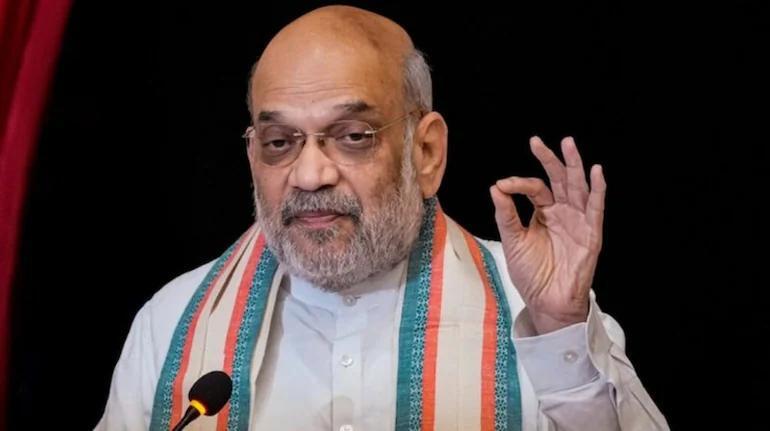
Shah asks K’taka BJP leaders to forget differences & work unitedly
In a bid to strengthen the Bharatiya Janata Party’s (BJP) position in Karnataka, Union Home Minister Amit Shah has asked the party’s leaders in the state to put aside their past differences and work unitedly. This appeal has come at a time when some leaders within the party had opposed the presidency of BY Vijayendra, the state party president, accusing him of “adjustment politics” with the ruling Congress.
As per reports, Vijayendra’s presidency has been marred by criticism from some quarters, with some leaders questioning his credentials and accusing him and his father, former Chief Minister BS Yediyurappa, of trying to keep the party in their clutches. However, Shah’s intervention is likely to put an end to these internal squabbles and focus the party’s energies on the impending assembly polls in the state.
Shah’s remarks, which were made during a meeting with BJP leaders in Karnataka, stress the importance of unity in the party to achieve success in the upcoming elections. He emphasized that the party’s internal differences should not be allowed to undermine its prospects, and that every effort should be made to work together to ensure a strong performance.
The meeting, which was attended by top party leaders, including Vijayendra and other state unit office-bearers, also discussed the party’s strategy for the upcoming polls. Shah is said to have emphasized the need for a collective effort to take on the ruling Congress and the opposition parties, and to ensure a BJP victory in the state.
The development comes at a time when the BJP is facing challenges in Karnataka, where it had lost power in the 2018 assembly polls. The party had won 104 seats in the 224-member assembly, but was unable to form a government due to the lack of a majority. Subsequently, the Congress-JDS coalition came to power, and the BJP has been trying to regain its lost ground.
Vijayendra’s presidency has been marked by controversy, with some leaders questioning his credentials and accusing him of being soft on the Congress. However, Shah’s intervention suggests that the party is willing to put aside these differences and focus on the bigger picture – winning the upcoming assembly polls.
The BJP’s prospects in Karnataka are likely to be influenced by several factors, including the performance of the state government led by Chief Minister HD Kumaraswamy, and the party’s ability to capitalize on the anti-Congress sentiment in the state. The party is also likely to benefit from the popularity of Prime Minister Narendra Modi and the BJP’s national leadership, which has been instrumental in the party’s success in recent years.
In conclusion, Shah’s appeal to Karnataka BJP leaders to forget their past differences and work unitedly is a significant development in the context of the upcoming assembly polls in the state. The party’s ability to put aside its internal squabbles and focus on the bigger picture will be crucial in determining its prospects in the polls.






